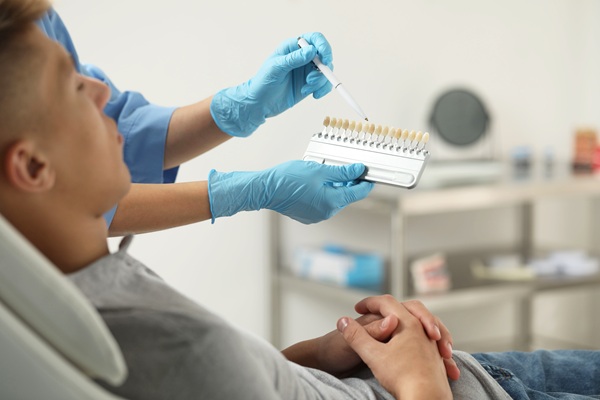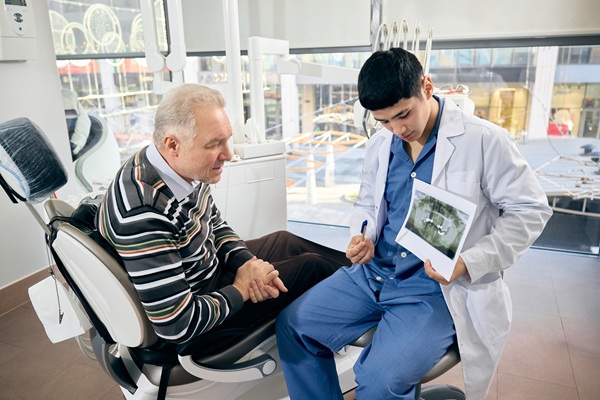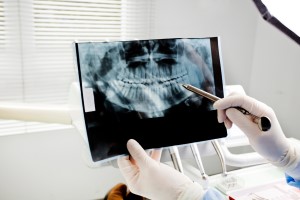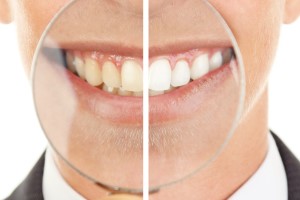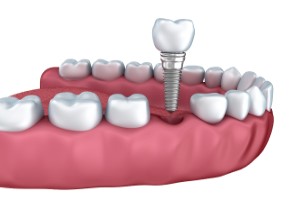How a Dentist Can Recognize Sleep Apnea
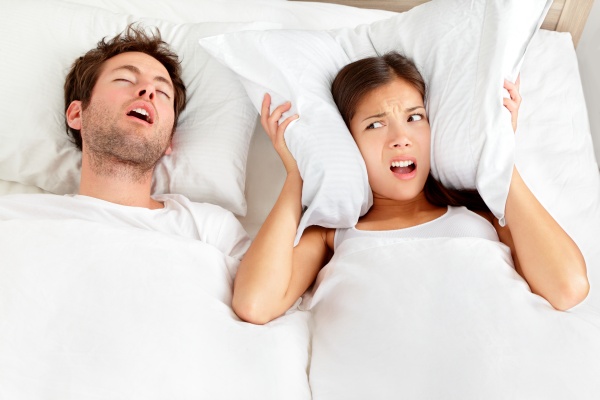
Sleep apnea is a serious and life-threatening sleeping disorder that affects up to 18 million Americans. During an episode of sleep apnea, the person stops breathing for about 10 seconds while sleeping, and this can continue throughout the night. Sleep apnea episodes can occur up to 60 times per night, depending on the severity. If you suspect that you have sleep apnea, it is advisable to consult with your dentist.
Sleep apnea diagnosis
Early detection of sleep apnea is crucial because the condition is associated with high blood pressure, heart attack, irregular heartbeat and stroke. There are three forms of sleep apnea: obstructive sleep apnea (OSA), central sleep apnea and mixed, which combines the two. OSA is the most common and occurs when the throat muscles collapse into the airways and blocks breathing. Central sleep apnea occurs when the brain does not send the required signals for breathing.
Since most people with sleep apnea forget the episodes when they wake up, it is usually their loved one or sleep partner that first notices the signs. Loud snoring, followed by a brief pause, then a choking noise as breathing starts may mean that someone has sleep apnea. The dentist can detect signs of the condition when a patient comes to the office for a checkup.
Some of the physical indicators that the dentist might notice during the intraoral cavity exam include:
- A narrow vaulted hard palate
- A large scalloped tongue
- Class II retrognathic mandible
- Narrow maxillary and mandibular arches
- The hidden posterior wall of the pharynx and related tissues
- A long soft palate drooping below the back of the tongue
Symptoms of sleep apnea
Sleep apnea comes with several side effects. Patients tend to normalize the symptoms, as some of the symptoms could be the repercussion of some aspects of their daily routine. Some of the symptoms and indicators associated with sleep apnea include:
- Loud and persistent snoring
- Excessive daytime sleepiness (EDS)
- Waking with headaches
- Moodiness and irritability
- Disrupted sleep with frequent awakenings
- Memory impairment
- Clouded thoughts (foggy brain)
- Waking to choke or gasping for breath
- High blood pressure
- Adult Type II diabetes
- Breathing cessation (usually noticed by bed partners)
After the initial consultation, the dentist may recommend an overnight sleep study known as polysomnography. This test measures multiple parameters, including blood oxygen level, heart rate and the number of breathing interruptions during sleep. If sleep apnea is the diagnosis, the sleep medicine professional will help to decide suitable treatment for the patient and initialize recommended therapies.
Treatments
Oral appliances that reposition the tongue and lower jaw are effective for some sleep apnea patients. Other options include correcting sleeping positions, weight loss and quitting smoking and alcohol. Some sleep apnea patients may require the continuous positive airway pressure (CPAP) device, which provides air through a small mask placed over the nose. A drastic measure would be to open air passages through oral surgery.
In conclusion
Good sleep plays a critical role in sustaining physical and psychological functions. If you suspect sleep apnea, it is advisable to contact the dentist for a diagnosis and treatment.
Request an appointment here: https://jacksonheightdental.com or call 82nd St. Dental at (718) 476-5555 for an appointment in our Jackson Heights office.
Check out what others are saying about our services on Yelp: Read our Yelp reviews.
Recent Posts
Many people who use a CPAP machine for sleep apnea do not use it as intended. In fact, about 30% to 50% of people with this form of treatment do not use it at all. If you are considering getting treatment from your dentist for your sleep apnea, you might be wondering how long this…
A dental check-up and cleaning is an essential part of taking care of your teeth. It can help prevent the onset of many oral diseases while also helping to improve your smile's appearance. After all, you only get one set of natural adult teeth, so it's up to you to properly take care of them.…
When you go to the dentist for your annual dental check-up, your dentist will conduct a thorough examination of your teeth and gums to ensure that they are healthy and free from decay or disease. During this visit, your dentist may use an instrument called a periodontal probe to measure how deep the pockets around…
For most people, going for a dental checkup is a routine activity, but for people dealing with high blood pressure, it is anything but routine because the medication they are taking puts them at an increased risk of having a stroke or heart attack while they are in the dentist’s chair.High blood pressure, also known…

